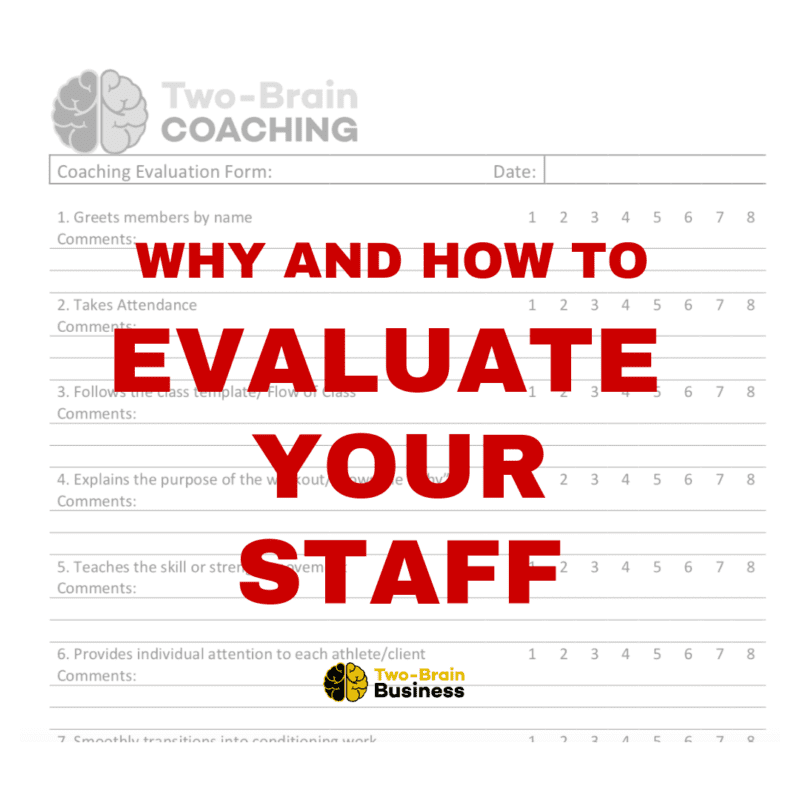By Anastasia Bennett, Two-Brain Mentor
Why should you evaluate your staff?
“The goal needs to be to get the team right, get them moving in the right direction, and get them to see where they are making mistakes and where they are succeeding.” ― Daniel Coyle, “The Culture Code: The Secrets of Highly Successful Groups”
Regular evaluations during the year will help your staff have a clear understanding of how they measure up against their targets and standards.
The purpose of evaluating your staff is to give them an opportunity to grow.
Evaluation and constructive feedback is a gateway for improvement. Don’t wait until your staff do something wrong. Conduct your evaluations every three to six months, and schedule them in advance.
We teach consistency, and staff evaluations should be done on a regular schedule. If you are consistent with your evaluations, there won’t be any surprises for your team. If you wait until they’ve done something wrong, that’s unfair to everyone. Be proactive, rather than reactive.
Evaluation sessions are a great way to acknowledge performance achievements as well. It will help your staff to feel safe and secure, and it will build a stronger culture within your workplace.
“Group performance depends on behavior that communicates one powerful overarching idea: We are safe and connected.” ― Daniel Coyle, “The Culture Code: The Secrets of Highly Successful Groups”
It is very important to keep your feedback informative, positive and constructive. Coyle recommended using this line in your delivery:
“I’m giving you these comments because I have very high expectations and I know that you can reach them.”
Celebrate great performances in public: Praise a staff person in front of your team. Give them visible rewards and tangible experiences. Make sure everyone receives praise for their specific actions, instead of general “good job, team!” posts. Team posts are the bare minimum; individual praise for specific traits or actions is much more powerful. Brag them up!
As a leader you should learn to have positive conversations and achieve good outcomes. You’ll need to work on active listening, creative thinking, asking critical questions, exploring concerns and interests, and participating in constructive conversations.
Resource: “Two-Brain Radio: Handling Difficult Conversations”
Evaluations are a great tool for you to become a better leader, designer and successful business owner.
Here is a free sample of a Coach Evaluation for you to download.

